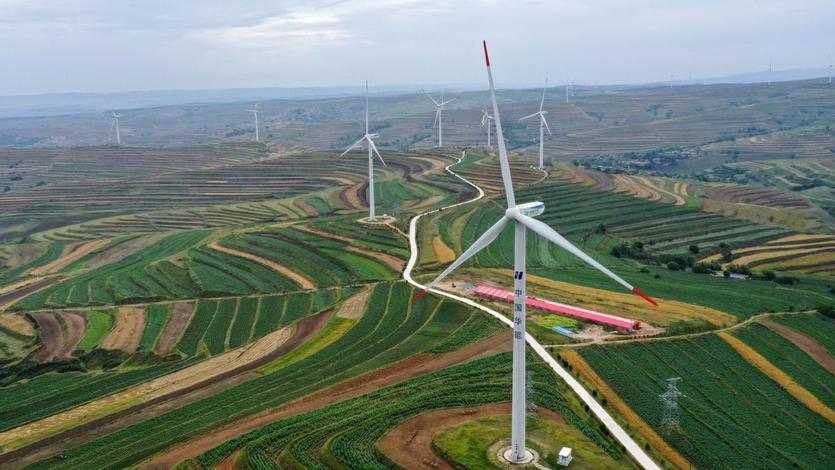 A wind power plant in Dingxi, Gansu province. (PHOTO / XINHUA)
A wind power plant in Dingxi, Gansu province. (PHOTO / XINHUA)
Upholding the idea that lucid waters and lush mountains are invaluable assets, China has managed to strike a balance between development and conservation over the past five years and will make consistent efforts to further promote green transition, according to the Government Work Report.
Thanks to the efforts to control multiple pollutants in a coordinated way and across all regions, the country has made significant environmental improvements, the report said.
In cities at and above the prefectural level, air quality was good or excellent, considered to be below 100 on the 0-500 air quality index scale, on 86.5 percent of days over the past five years. This was a 4-percentage-point increase over the period, the report said.
"Black, malodorous water bodies in cities at and above the prefectural level were generally cleaned up," said the report.
The report also included key statistics to demonstrate the achievements China has made in conserving its ecosystems.
Forest coverage has risen to more than 24 percent over the five years, and more than 50 percent of all wetlands are now under protection, it said. The area of land affected by soil erosion, desertification and sandification was reduced by 106,000, 38,000, and 33,000 square kilometers, respectively.
There has also been significant progress in the country's efforts to reach peak carbon dioxide emissions before 2030 and realize carbon neutrality before 2060, according to the report.
China's development has fully demonstrated that environmental protection and economic development can reinforce each other, Huang Runqiu, the minister of ecology and environment, told reporters on Sunday.
Over the past 10 years, China has seen its annual GDP grow by more than 6 percent on average while polluting emissions have been consistently and sharply reduced, he said, adding that the annual density of PM 2.5, particulate matter with a diameter of 2.5 micrometers or less, for instance, has fallen for nine straight years.
He said the ministry will further tighten rules in examining and approving environmental impact assessment reports for major projects.
The development of industries with high energy consumption and emissions, projects in areas with fragile ecosystems and the transfer of projects with high emissions from eastern China to the west of the country will be highly restricted, he noted.


